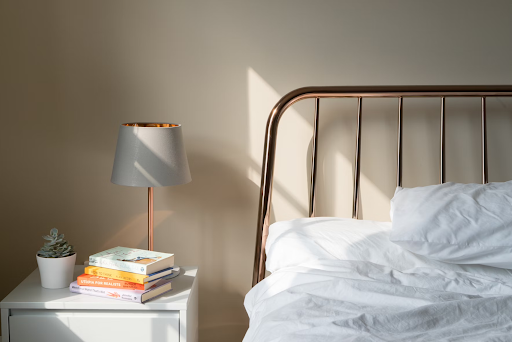Waking up with Body Aches – Causes & Preventions

Author: Jonathan Warren
After a good night’s sleep, the last thing you expect is to wake up with aches and pains yet for some of us, waking up is associated with sore body parts.
There is a myriad of reasons as to what can cause aches and pains first thing in the morning and below, we have explored some of the most common morning gripes as well as what you can do to prevent them.
All over body aches
Pain experienced in the morning is normally localised to a certain area such as your back or neck, but if find yourself waking up and being sore all over, there are some explanations as to why this may be happening.
DOMS (Delayed onset muscle soreness)
Delayed onset muscles soreness, or DOMS as it’s more widely known, is the feeling of sore, stiff muscles which occurs 24 – 72 hours after exercising. Exercising can cause small tears in the muscle, which are thought to be the cause of DOMS. However, it is more likely to strike if you skip warming up and cooling down, if you are trying a new exercise routine, or if you haven’t worked out in a long period of time.
While DOMS can be unpleasant to experience, the soreness usually passes as quickly as it arrives. Warming up, cooling down and stretching post workout can help prevent DOMS. There are also some steps you can take to help alleviate the symptoms including:
- A gentle workout to get the blood flowing
- A deep tissue sports massage
- Heat via either a sauna or a hot bath
Fibromyalgia
Fibromyalgia is a medical condition which affects the way the brain processes pain signals. The main symptom experienced is all over musculoskeletal aches and pains.
Other symptoms of fibromylgia can include:
- Depression
- Anxiety
- Irritable Bowl Syndrome (IBS)
- Fatigue
- Poor sleep brought on by pain
- Headaches
If you feel like you are constantly waking up with sore muscles for no reason, then it’s always best to consult the advice of a medical professional.
Localised pain
Many adults experience localised aches and pains in the morning, with a sore back and aching legs the most common complaints.
Waking up with a sore back
There are many possible causes of back pain, although a sedentary lifestyle is one of the biggest factors. If you find you only experience back pain in the morning, you may want to consider updating your mattress and pillow or switching sleep positions as these may be the root of the cause.
Poor posture is a common cause of lower and upper back pain; many adults leading a sedentary lifestyle with desk jobs struggle with poor posture that worsens over time. Slumping over a computer desk all day causes shoulders to hunch and the muscles overcompensate, eventually leading to a muscle imbalance which causes stiffness and soreness.
A vitamin D deficiency (osteomalacia) can also cause morning back pain, as well as accompanying general lower body pain. The deficiency manifests itself in several symptoms including tiredness and fatigue, sweating and taking considerably longer to recover from DOMS. Natural sunlight, fatty fish and fortified foods such as cereal can all help to increase vitamin D intake but if you’re worried about your levels, it’s worth visiting your GP.
Waking up with aching legs
Waking up with aching legs can be causes by lifestyle factors – for example, long periods of walking or standing the previous day can leave legs sore. Poor sleep can also contribute to leg ache, as our bodies need a good night’s sleep to recover from any muscle soreness.
Another possible cause of painful legs is poor circulation. While some medical conditions such as diabetes can lead to poor circulation, lifestyle factors such as sitting or lying in the same position all day can also contribute.
If you have varicose veins, you might find you get experience leg pain and itching. Varicose veins are caused by veins and valves that are too weak to efficiently and effectively pump blood through them, which can lead to these symptoms.
Best sleeping positions to prevent pain after sleeping
How you sleep can contribute to muscle soreness, and one of the easiest and most effective things you can do to help prevent aching when waking up is to switch up your sleeping position.
Sleeping on your back
Sleeping on your back is widely recognised as the best sleeping position as it allows your mattress to effectively support your spine. It does come with its downsides as back sleeping is often associated with snoring – however if you fall into the category of the non-snorers of the world this way of sleeping is considered one of the best ways to prevent morning back ache.
Side sleeping with a pillow between your knees
Side sleeping with a pillow between your knees is another back-friendly position. Lying on your side allows the spine to decompress while the pillow props up your leg to create a straight line from the top of your spine to the bottom, preventing poor alignment of the hips and pelvis.
Sleeping on your front with a pillow for support
Sleeping on your front is often referred to as an absolute no-no for a good night’s sleep as it provides little support to the spine. However, adding a pillow under the stomach for support can help alleviate unwanted and uncomfortable pressure.
It’s almost inevitable that every one of us will wake up with an ache or pain at some point during adulthood but whilst they can literally be a pain in the neck, they generally pass after time. If your aches aren’t subsiding, it’s always best to visit your GP to find out the cause of your problem.
If you think it may be time to upgrade your bed or mattress, look no further! We have a fantastic range of high-quality beds, mattresses and other bedroom furniture items to help make sure you get the best night's sleep possible!



